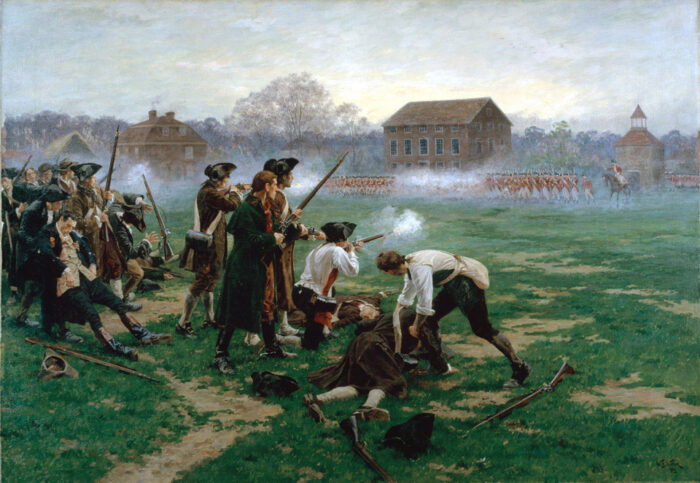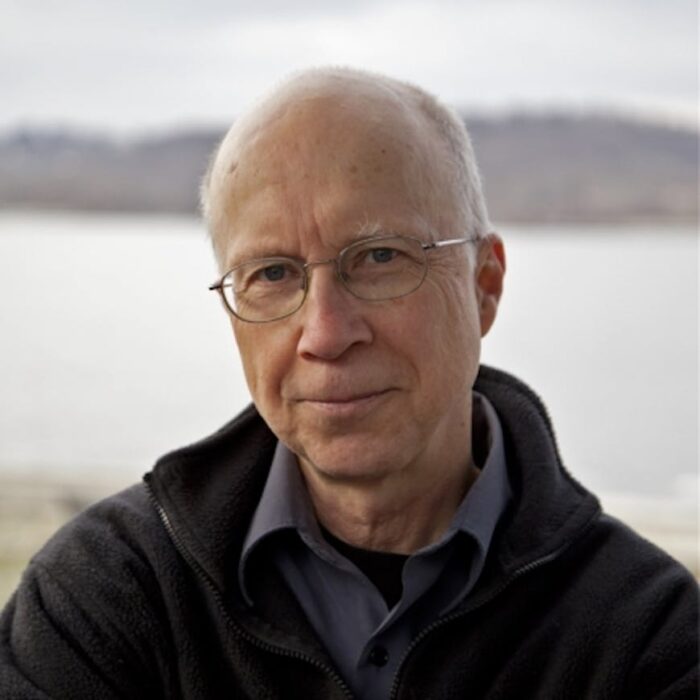dd
dd
by Jack Kelly
Today is Patriots’ Day in Massachusetts. It commemorates the battles at Lexington and Concord, which occurred on April 19th and touched off the Revolutionary War. It’s also the day of the Boston Marathon, which itself commemorates a Greek victory over Persian invaders in 490 B.C. The holiday is observed in five other states—Maine, Florida, Wisconsin, Connecticut, and North Dakota.

The fighting at Lexington in 1775 has been drummed into our national mythology. Most of us know Longfellow’s galloping ballad celebrating Paul Revere’s ride to alert the country the night before the battle:
On the eighteenth of April, in Seventy-five
Hardly a man is now alive
Who remembers that famous day and year. . .
Emerson’s sang:
Here once the embattled farmers stood
And fired the shot heard round the world.
It may be telling that the holiday associated even more with our country’s founding is the Fourth of July, which is linked not to a war fought by volunteers but to a Declaration issued by politicians. Yet ultimately it is to the courage and defiance of the ordinary men and women of that time that we owe our independence.
Paul Revere was part of the well-oiled intelligence and communication system set up by the patriots (they called themselves Whigs in those days). Word spread of a British expedition aimed at the valuable store of arms and supplies in Concord, eighteen miles northwest of Boston.
It was not the first time that the British commander, General Thomas Gage, had attempted to remove the means of war—gunpowder, muskets, and cannon—from the populace. The previous September, his troops had confiscated 250 barrels of powder from a magazine in Cambridge. The outrage that swept Massachusetts after that incident prompted Gage to ask London for 20,000 more men to keep the peace. They sent him 400.
Then in December 1774, Revere had ridden all the way to Portsmouth, New Hampshire to alert patriots. They fought a brief skirmish with the garrison of the British fort there and took the arms for themselves. In Marblehead, Massachusetts, a British regiment had been met by a group of armed fishermen. After standing eyeball-to-eyeball with the Americans, Gage’s men backed down. “Things now every day begin to grow more and more serious,” wrote Hugh Percy, Gage’s subordinate.
On April 19, it would be different. To assure success, Gage sent seven hundred crack troops on the secret mission to Concord. He named the corpulent Colonel Francis Smith as commander. Smith proved to be too slow and too sloppy for a situation that required speed and precision. Revere and other alarm riders began to spread the word before the troops were even on the road. By the time the soldiers marched the eleven miles to Lexington, a special patriot militia force, referred to as “minute men,” had lined up on Lexington’s triangular green, thirty-eight men with muskets.
They were a motley crew, some old men, some boys. Drummer William Diamond was sixteen. Their commander, Captain John Parker, was a veteran of the French and Indian conflict of the 1750s. Most of the others were amateurs at war, local farmers determined to defy the king’s troops.
Even if we did not know the outcome, the events at Lexington had a strange sense of inevitability, as if history itself were moving the chess pieces. Parker was not a man to order such a suicidal stance. His companions were practical citizens with no immediate provocation. Yet for reasons they weren’t even sure of themselves, they formed in a line. Vastly outnumbered, they faced the professional soldiers dressed in scarlet.
The British troops had endured months of being mocked, insulted, spat upon by the citizens of Boston. They were eager for a fight. Their commander ordered the Americans to disperse. Captain Parker told his men to do so. Some did. Others moved but “not so speedily as they might have done.”
Suddenly it was too late. A shot sounded. A warning? A misfire? The British unleashed a fusillade. They rushed ahead with bayonets gleaming. “The men were so wild they could hear no orders,” one soldier noted.
One of those shot was Jonathan Harrington, thirty years old. He lived barely a hundred yards away. His wife and eight-year-old son watched him stumble and crawl to their doorstep, where he died. Some Americans were killed on the spot, others shot in the back as they left the green. Eight in all died that spring morning.
The fight would continue—at Concord, on the road back to Boston, then through more than six years of hardship and killing. Although the names of the Lexington minute men are largely forgotten, those who died there hold a unique place in our history. They were not fighting for their country. They had no flag to inspire them. Instead, they took a stand for an idea. They gave their lives to create a country. An imperfect one, yes. But a noble experiment in self-rule, dedicated to a proposition that has inspired humanity for nearly 250 years.
Originally published on Jack Kelly’s Talking to America.

Jack Kelly is a journalist, novelist, and historian, whose books include Band of Giants, which received the DAR’s History Award Medal. He has contributed to national periodicals including The Wall Street Journal and is a New York Foundation for the Arts fellow. He has appeared on The History Channel and been interviewed on National Public Radio. He grew up in a town in the canal corridor adjacent to Palmyra, Joseph Smith’s home. He lives in New York’s Hudson Valley.

